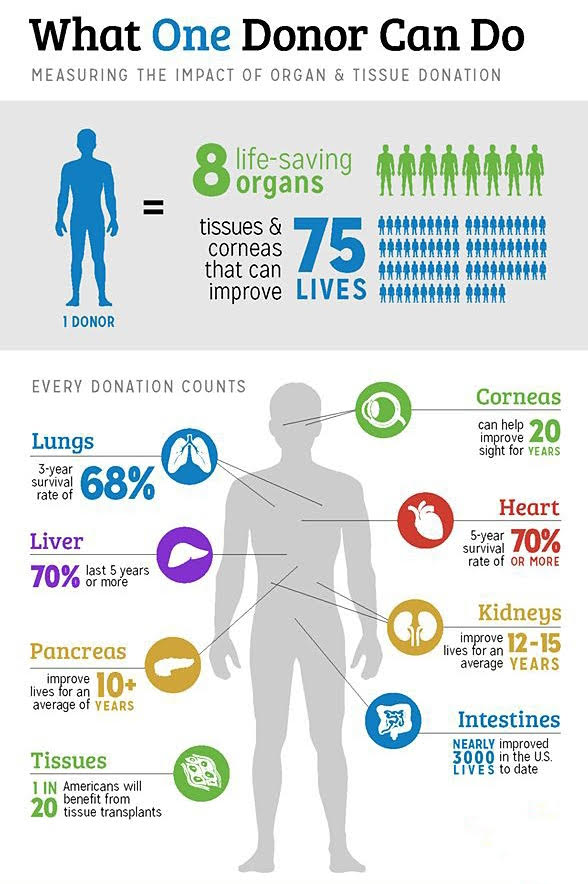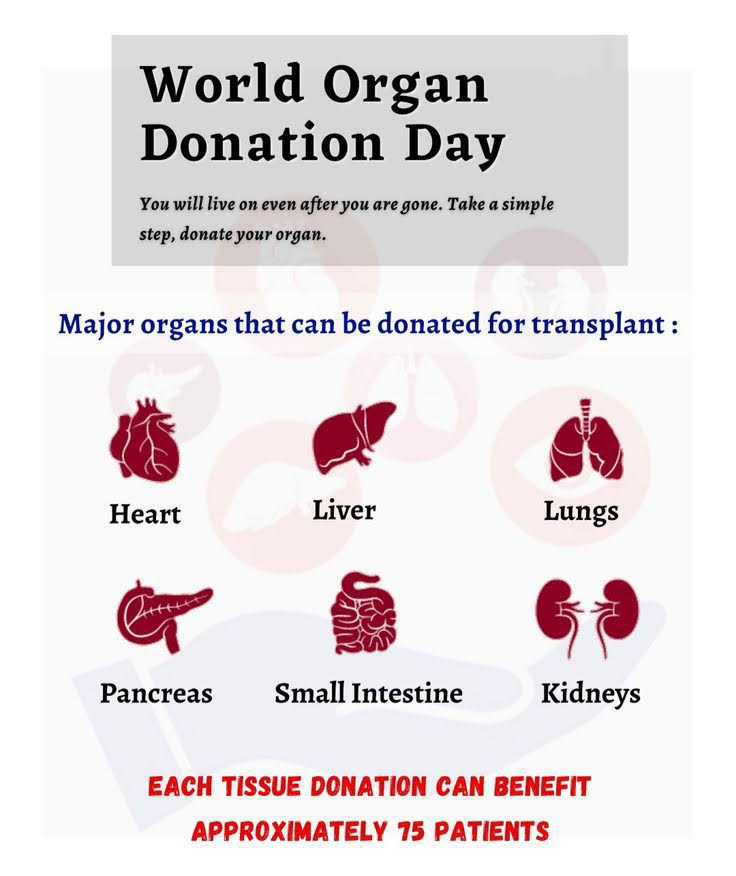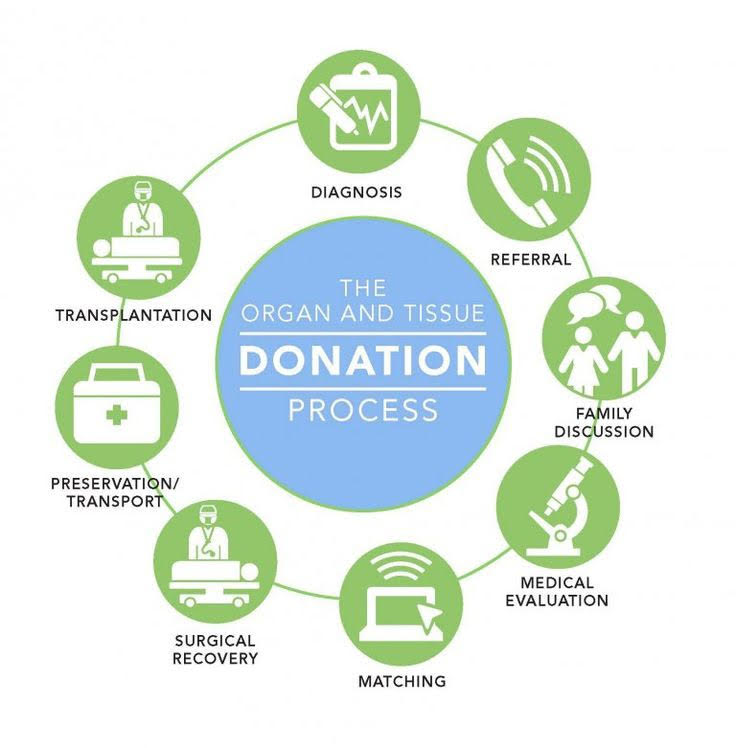Have you ever waited for an organ donation? Probably most of the answers were maybe no, but if the answer is yes, then you are definitely going to relate to this. Do you know that every 10 to 15 minutes, 1 person from any corner of the world is added to the waitlist for organ transplants, and many of them die every day by just waiting for an organ donation?
More than three lakh patients are waiting for organ donation, while the donor count is limited to just a few thousand. A few people who are on the waitlist get donors on time, while others are just hoping to find one and die in this hope.
According to the data, there is only one donor available per million people, but many of us are not even aware of all these; hence, it is necessary to spread awareness about the importance of organ donation. With this motive, World Organ Donation Day is celebrated on August 13 every year.
Organ Donation
organ donation is a process in which organs are legally removed from an individual’s body for the purpose of either scientific research or transplantation into another person’s body whose own organs are either failed or stopped working
History of world organ donation day
Let’s see when people started celebrating this day. However, many countries celebrate this day according to the history of organ donation in their country, like:
- On global level, the first living donor organ transplant done in 1954 in USA
- In India first successful deceased organ donation happened on August 3, 1994 Therefore, organ donation day in India is celebrated on August 3, 2023 but before 2023, it was celebrated on November 27, 2010, which starts in 2010
- The national organ and tissue transplant organisation assigned July as organ donation month to commemorate the implementation of the transplantation of human organs Act on July 8, 1994.
This day is celebrated every year to raise organ donation awareness among people and encourage them to donate their organs.
importance of Organ Donation
Organ Donation Day is celebrated with the motive of making people pledge to donate their organs after death to save others lives, as one deceased donor can save 8 lives and also have the potential to improve 75 lives. That’s why this day emphasizes spreading awareness about how organ donation is important. It includes:

Spreading awareness
One of the main reason to celebrate world organ donation day is to make people aware of organ donation on global level and to educate community about organ donation
Shortage of organs
We try to make more people pledge to donate their organ by addressing the shortage of organs needed for patients to lower the gap between demand and supply of organs and encourage them to register themselves as organ donor
Celebrate donor as real heroes
We honour the contribution of selfless donors and their families for saving the lives of many people and give them recognition as real superheroes who save others lives by donating their part of body
Inspire people to pledge
This day, we try to encourage people register as organ donor to change someone’s life into a positive way It probably aims to convert awareness into registration for organ donation
Provide support to organ recipient
Many seminars or events were also organised on this day to share stories of organ recipes and donors and encourage others to donate their organs
list of organs which can be donated

Organs that can be donated as living donors:
- One kidney
- One lung
- a part of the liver
- a part of the pancreas
- a part of the intestine
Organs that can be donated when the donor is deceased:
- Both kidneys
- Both lungs
- liver
- heart
- pancreas
- intestine
- hand and face
Process for donating organs

Types of organ donation
We can donate organs in several ways:
Living donation
When a living person donates his organ or a part of its organ, it becomes living donor The most common example is blood donation kidney donation lever donation, etc
A person who is medically fit and whose blood group and tissue match those of the recipient can be a living donor
Cadaver donation
When a person’s organs are donated to a recipient after his death, he becomes the cadaver or deceased donor. In such cases, the organs are removed from the body as soon as possible after death. A person who is willing to donate organs after his death needs to be registered as an organ donor.
In this case, the organ that can be donated is analysed after knowing how the person died, or we can say after knowing the reason behind the person’s death.
In case of brain death a donor can donate his heart, lung, pancreas, kidney, and liver On the other hand, in the case of natural death, only tissues can be donated, such as cornea bone marrow heart, etc because the organs generally die due to the lack of oxygen supply to body after death
Benefits of organ donation
Organ donation offers various life-saving benefits, such as
- One donor can save up to 8 lives through donating its vital organs like heart kidney liver lungs
- Organ donation awareness helps build supportive community benefits.
- Families of donor find solace in knowing that their loved ones organ head others
- Transplant can only change the recipients health, which allow them to leave more actively
- Successful transplants can reduce long-term medical expenses, such as those associated with dialysis
Eligibility for donating organs
- Every person is a potential donor When a person passes away, their medical history and age are used to determine their suitability
- Anyone irrespective of age religion community caste extra, can donate his or her organs
A strict set of medical criteria is followed for deciding on organ donation. - Tissues can be donated after natural death but organs can be only donated after brain death
- Anyone under the age of 18 must have agreement of a parent or guardian to donate their organs
- If anyone is suffering from active cancer, HIV, diabetes, kidney disease, or another serious condition, then that person can’t donate as a living donor.
We post so many other health-related blogs; if you are interested, then you can check out our website to read all those. Click here to read previous blogs.